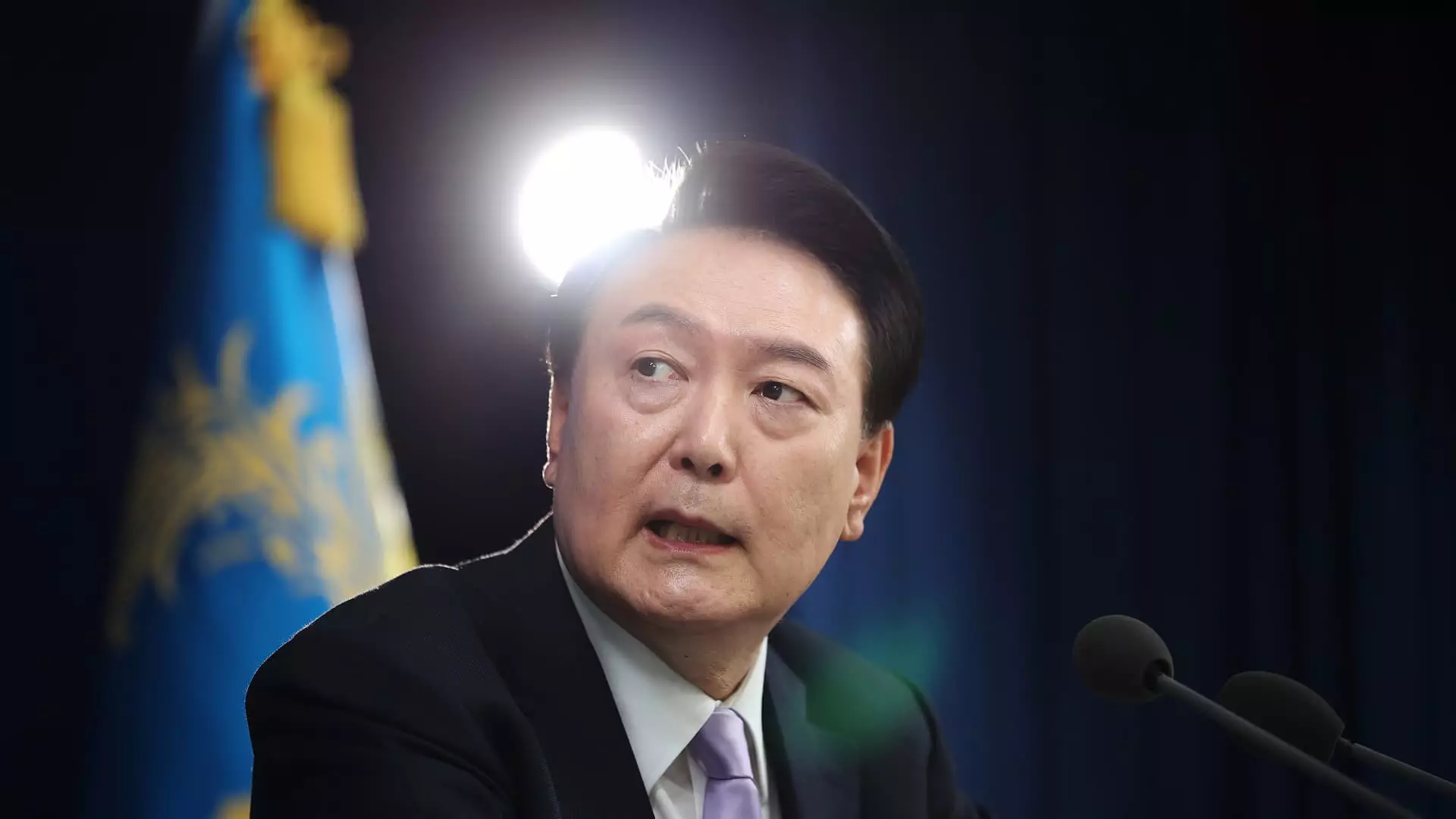In a dramatic turn of events that underscores the volatility of South Korea’s political sphere, President Yoon Suk Yeol narrowly escaped an impeachment motion this past Saturday. The opposition, which included members from the prominent Democratic Party, sought to hold him accountable after his ill-fated bid to implement martial law earlier in the week. However, the ruling People Power Party deftly sidestepped the crisis by boycotting the vote, thereby preventing the necessary quorum from being established. This episode highlights not just the deep partisan divides in the National Assembly, but also the complexities of governance in a country with a history of political upheaval.
A successful impeachment would have instantly invalidated Yoon’s presidential powers, initiating a swift, 60-day timeline for a presidential election. This situation is reminiscent of South Korea’s past, as both Roh Moo-hyun in 2004 and Park Geun-hye in 2016 faced similar fates. The specter of impeachment loom large over the current administration, indicating a recurring theme of instability that continues to plague political leadership in the nation.
Yoon’s attempt to invoke martial law marked a significant and controversial moment in South Korean history, being the first such invocation since the military coup of 1979. Justifying his actions, Yoon claimed it was necessary to “protect the constitutional order” and eliminate perceived threats posed by pro-North Korea groups. Yet, the martial law effort faced immediate backlash, highlighted by widespread protests. Within those protests, a striking public sentiment emerged: South Koreans, already disenchanted by an administration that has seen his approval ratings plummet to an alarming 19%, felt further alienated by what many considered an authoritarian maneuver.
In the face of these developments, South Korea’s parliament quickly moved to rescind the martial law resolution as a means of reasserting democratic norms. The Financial Services Commission along with major investors increasingly worried about potential ramifications for the economy. Their decisive action illustrates the intertwining nature of political and economic stability in South Korea — underlining just how quickly fear can penetrate financial markets.
Financial analysts have warned that the unfolding political drama could exacerbate already precarious economic conditions. Adarsh Sinha, co-head of Asia rates and FX strategy at Bank of America Securities, cautioned that the Korean won could experience significant fluctuations following the weekend’s developments. This bears repeating: political upheaval and instability can heavily influence market dynamics.
As the dust settles, the Bank of Korea faces mounting pressure, not merely due to political turbulence but also economic fundamentals that suggest potential rate cuts ahead. With the broader Asian markets anxiously watching, the interconnectedness of domestic policy and international finance was starkly illustrated by the immediate ramifications following martial law pressures.
The fallout from Yoon’s controversial maneuvers does not only exhibit tensions between political factions but also raises questions about leadership fidelity within the ranks of the ruling party itself. Han Dong-hoon of the People Power Party has even suggested the possibility of suspending Yoon, underscoring internal concerns over potential radical actions in the future — perhaps reimposing martial law again. In an environment where the integrity of political leadership is under scrutiny, such remarks can create fissures within a party that was once hopeful of consolidating power.
Moreover, Yoon’s recently appointed Acting Defense Minister Kim Seon-ho has publicly stated he will not comply with martial law directives, suggesting a breakdown in command hierarchy that could undermine the administration’s operational coherence. Such resistance is indicative of the broader skepticism regarding Yoon’s governance and decision-making competence in a historically tumultuous political landscape.
In the wake of the weekend’s tumult, Yoon attempted to mollify public sentiment with a televised address in which he expressed regret over the uproar caused by the martial law controversy. Yet the question remains: can he stabilize his presidency and restore public trust, or is this merely a fleeting moment of adherence to democratic norms before another crisis unfolds?
As Yoon strives to navigate this precarious landscape, South Korea stands at a crossroads. With historical precedents looming large, how the current administration manages political tensions moving forward could well determine not only its future but the resilience of South Korean democracy itself. The coming days will be critical in shaping what lies ahead in this dynamic and increasingly unpredictable political environment.



Leave a Reply